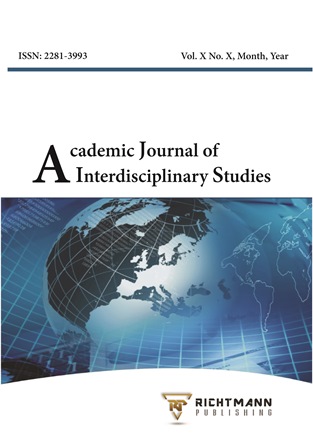Financial Development and Its Impact on the Shadow Economy in Albania
DOI:
https://doi.org/10.36941/ajis-2023-0074Keywords:
Shadows Economy, Financial Development, Toda Yamamoto Granger Causality TestAbstract
This study investigates financial development's effect on Albania's shadow economy from 1995 to 2015. We use data on the shadow economy from Medina and Schneider (2018) and other economic variables to examine the relationship between the shadow economy and economic growth. We use ADF, PP, and KPSS tests to determine the stationarity of the data series and Toda Yamamoto Granger Causality and VAR(p+dmax) estimation to identify the direction of the causal relationship between financial development and other economic variables and the shadow economy in Albania. Our results indicate a unidirectional causal relationship between financial development and the shadow economy, as well as between trade openness and the shadow economy. These findings suggest that efforts to improve and deepen financial development and trade openness could help formalize Albania's economy. Based on these results, we recommend that the Albanian government focus on financial inclusion reforms and facilitating exports and imports to combat the shadow economy and bring these activities into the formal sector.
Received: 21 February 2023 / Accepted: 20 April 2023 / Published: 5 May 2023
Downloads
Downloads
Published
Issue
Section
License

This work is licensed under a Creative Commons Attribution-NonCommercial 4.0 International License.
This work is licensed under a Creative Commons Attribution-NonCommercial 4.0 International License.








